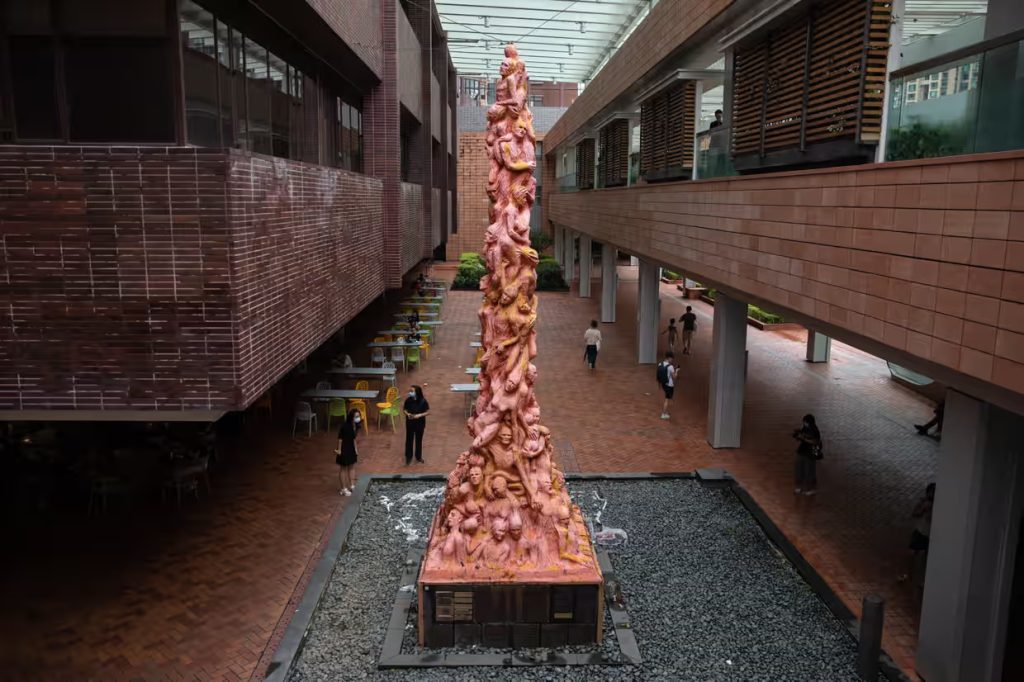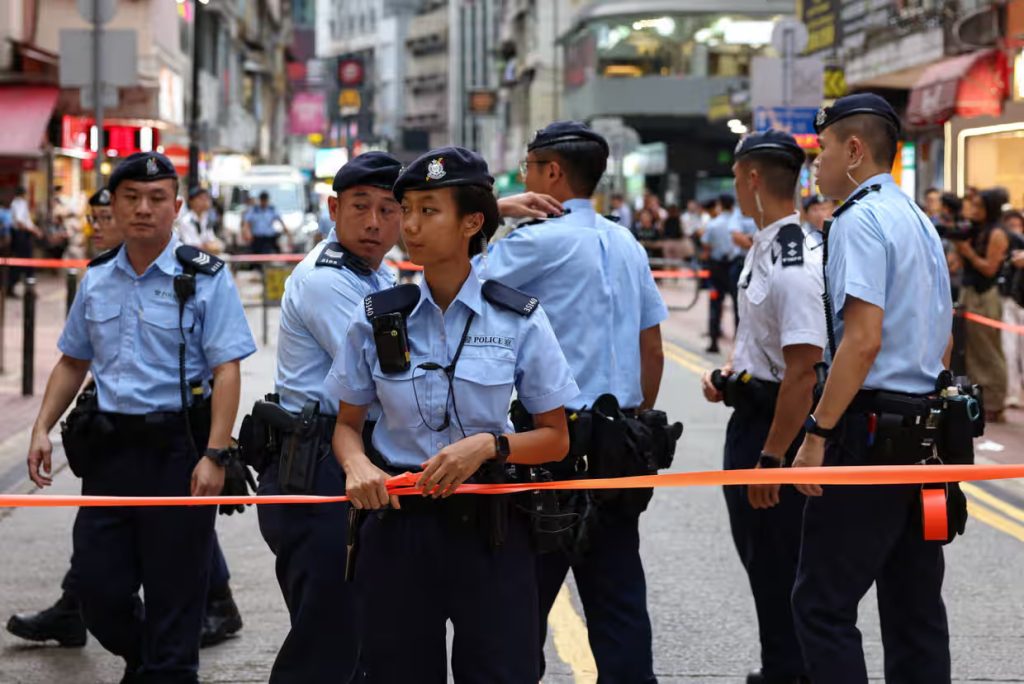U.S. and Taiwan Mark 36th Anniversary of Tiananmen Square, Condemn China’s Continued Censorship
On the 36th anniversary of the Tiananmen Square massacre, U.S. Secretary of State Marco Rubio and Taiwan President Lai Ching-te reaffirmed their commitment to remembering the brutal crackdown—an event the Chinese government continues to suppress from national memory.
While the Chinese authorities have never released an official death toll, human rights activists estimate that hundreds, possibly thousands, were killed on June 4, 1989, when the People’s Liberation Army opened fire on unarmed protesters near Tiananmen Square in central Beijing.
“Today we honor the courage of those who were killed while exercising their fundamental freedoms, and we stand with those who still seek justice for June 4, 1989,” Rubio said in a statement. “The Chinese Communist Party tries to erase the truth, but the world will not forget.”
Taiwan’s President Lai echoed this sentiment in a Facebook post, commending the protesters’ courage. “Authoritarian regimes try to silence history, but democratic societies preserve it,” Lai wrote. “We remember those who gave their lives—and their dreams—for the cause of human rights.”
The 1989 movement began as a student-led protest calling for political reform and greater freedoms under the Chinese Communist Party. Demonstrators occupied Tiananmen Square for weeks, drawing international attention. But the peaceful uprising ended in bloodshed when the military was deployed to forcibly remove them. Reports also indicate that several demonstrators were killed in Chengdu, in China’s southwest, during related protests.
June 4 remains one of the most heavily censored subjects in China. The government uses advanced surveillance and online censorship tools to suppress any reference to the date. Social media posts, even with indirect or coded references, are routinely removed. Activists inside China are often placed under surveillance or sent on mandatory “vacations” to prevent them from commemorating the anniversary.
A new report released Wednesday by the human rights organization Article 19 sheds light on China’s international efforts to silence dissent. According to the report, Chinese authorities and affiliated agents have engaged in a global campaign of transnational repression against critics of the Chinese Communist Party. Uyghurs, Tibetans, Hong Kongers, and exiled dissidents are particularly vulnerable, with heightened targeting around the anniversary.

The report referenced a 2023 study by Freedom House, which found that China was responsible for roughly 30% of all documented cases of physical transnational repression worldwide since 2014. “Individuals targeted by transnational repression often live in constant fear—subjected to surveillance, harassment, threats of abduction, and forced repatriation, especially near Chinese embassies and consulates,” the report stated. “There is also the risk of ‘collective punishment,’ where family members in China face retaliation, leading many to sever contact with their loved ones.”
Researchers from Article 19 noted that, with Tiananmen Square memorials effectively banned within China, pro-Beijing agents appear to be expanding their efforts to disrupt commemorative events abroad.
One such incident occurred in 2022, when a replica of the “Pillar of Shame”—a sculpture by Danish artist Jens Galschiøt honoring the victims of the June 4 massacre—was vandalized in Taipei. The original sculpture stood at the University of Hong Kong for 23 years before being dismantled by the university in 2021 under growing political pressure.
For many years, Hong Kong—and to a lesser extent, Macau—remained the only territories under Chinese sovereignty where public commemorations of the Tiananmen Square massacre were tolerated. That space for remembrance has since been shut down.

Since the pro-democracy protests of 2019 and the sweeping crackdown on civil liberties that followed, Hong Kong’s annual June 4 vigil in Victoria Park has been banned. In recent years, several prominent activists have faced prosecution for attempting to commemorate the Tiananmen Square massacre. For the past three years, a government-sponsored food carnival has been held at the park during the anniversary week—widely seen as an effort to crowd out any potential gatherings.
On Tuesday, a heavy police presence was reported in the Causeway Bay area near the park, according to Hong Kong Free Press. Performance artist Chan Mei-tung was stopped, searched, and eventually escorted away by police. She was reportedly standing on the street chewing gum. In 2022, Chan was arrested in the same area after she was seen peeling a potato—an act interpreted as a silent protest.
Ahead of the anniversary, Hong Kong Chief Executive John Lee warned that any activities on June 4 must be “lawful,” though he did not clarify what would constitute a violation. Critics argue that Hong Kong’s national security laws are intentionally vague, granting authorities wide discretion to target dissent under ill-defined charges.
Within mainland China, one of the few remaining groups still openly demanding justice for the 1989 massacre is the “Tiananmen Mothers”—relatives of victims who have spent decades seeking an official account and apology. Now elderly, the group faces increasing restrictions. One of its founding members, 88-year-old Zhang Xianling, gave a rare interview this year to Radio Free Asia. Under constant surveillance, Zhang questioned the government’s fear: “I don’t know why they are so afraid of me. I’m 88 years old and can’t walk more than 200 meters without a wheelchair. Am I really that frightening?”
Earlier this week, Li Xiaoming, a former People’s Liberation Army soldier who has lived in Australia for 25 years, spoke publicly for the first time about his role in the 1989 crackdown. In an interview with Taiwanese media, Li said he felt a responsibility to speak out—both as a warning to the world and to Taiwan, which faces ongoing threats from Beijing.
“Although the CCP leadership views the June 4 incident as a source of shame, what they truly took from it was a lesson in control: crush unrest early, dominate public opinion, and indoctrinate the population,” Li said, according to a translation by CNA. “Their strategy is to extinguish instability before it can grow.”

